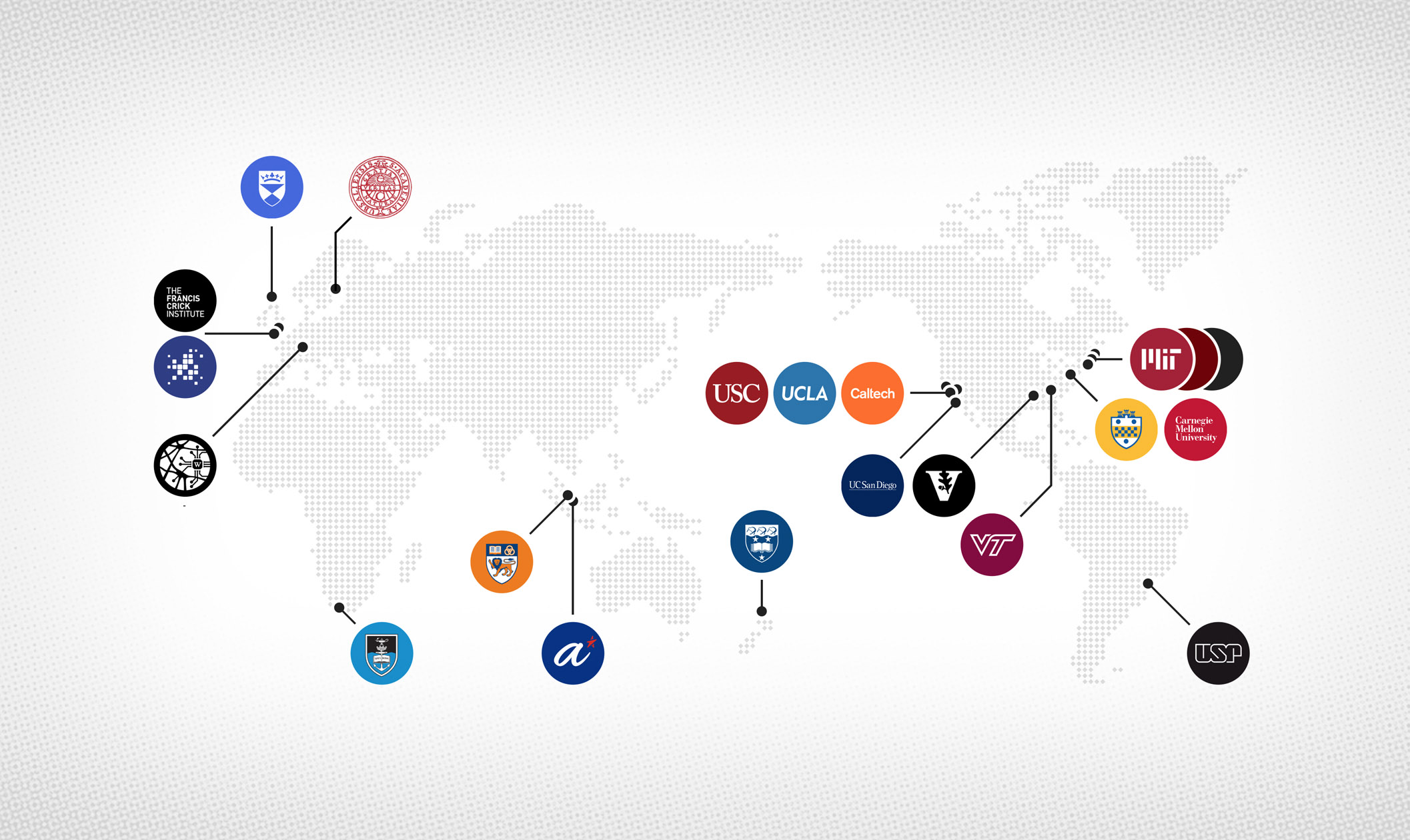

Wellcome Leap Establishes Global Network Dedicated to Accelerated Breakthroughs in Human Health
Charter group of 21 world-class institutions representing a network of
over 150,000 researchers across six continents sign agreement that sets new bar for fast-paced research and development.
Jan 28, 2021
Share this work
Los Angeles – Jan. 28, 2021: Wellcome Leap (Leap), a U.S.-based non-profit organization founded by the Wellcome Trust to accelerate innovations that benefit global health, today announced the first 21 participants in the Leap Health Breakthrough Network, a global group of leading academic and research institutions committed to solving the world’s most serious health challenges — such as cancer and infectious diseases — at record speed.
The COVID-19 pandemic has underscored the importance of tackling urgent, large-scale health challenges quickly and across disciplines, organizations, and borders. It’s imperative that good ideas are identified and funded quickly, and that researchers across many institutions can build solutions together.
Currently it can take as long as a year to finalize a research funding agreement, and when collaboration is required, work frequently cannot begin until all parties are signed — further prolonging the delay. What’s more, key components needed to catalyze innovation sometimes come from individual researchers or smaller institutions that are often left out of major research initiatives. Breakthroughs require momentum, and diverse capabilities, wherever they exist globally.
The Leap Health Breakthrough Network will help eliminate barriers to progress thanks to the first-of-its-kind Master Academic Research Funding Agreement (MARFA), which equitably addresses all terms and conditions, including IP, ownership, and publication. Once an organization signs the MARFA, any researcher or group will need to negotiate only the statement of work and cost before funds can be transmitted and work can begin. Often in days, shaving months or more off of development timelines.
“Science and engineering should move at the pace of breakthroughs, not the pace of contracting,” said Leap CEO Regina E. Dugan. “Wellcome Leap has removed traditional obstacles to build a network that can mobilize and synchronize to solve problems in human health faster than has ever been possible.”
Charter signatories for the network include: Agency for Science, Technology and Research; California Institute of Technology; Carnegie Mellon University; Francis Crick Institute; Harvard John A. Paulson School of Engineering and Applied Sciences; Massachusetts Institute of Technology; National University of Singapore; University of Auckland; University of California, Los Angeles; University of California San Diego; University of Cape Town; University of Dundee; University of Pittsburgh; University of São Paulo; University of Southern California; Uppsala University; Vanderbilt University; Virginia Tech; Wellcome Sanger Institute; Wyss Center for Bio and Neuroengineering; and Wyss Institute for Biologically Inspired Engineering at Harvard University.
“The world has just seen an unprecedented scientific advance — the delivery of a COVID-19 vaccine in 10 months,” said Richard Hatchett, CEO of the Coalition for Epidemic Preparedness Innovations. “Wellcome Leap has catalyzed a first-ever global network that will help deliver, well beyond this pandemic, new breakthroughs along what would previously have been considered impossible timelines.”
Participants in the Leap Health Breakthrough Network as well as commercial partners will play an ongoing part in Leap’s work to build and execute bold, unconventional programs, funded at scale. This includes efforts such as the $50 million Human Organs, Physiology, and Engineering (HOPE) program, announced in late 2020.
Ken Gabriel, COO of Leap, said: “The opportunities for health breakthroughs are rich at the intersection of life sciences and engineering. This network will efficiently bring together collaborators from across disciplines to drive and deliver advances in global health.”
Institutions interested in joining the Leap Health Breakthrough Network should send an email to: HBNet@wellcomeleap.org.
About Wellcome Leap
Wellcome Leap builds and executes bold, unconventional programs, funded at scale. Programs that aim to deliver breakthroughs in human health over 5 – 10 years. Founded by the Wellcome Trust in 2020 as a US nonprofit with initial funding of $300 million, Leap programs target complex human health challenges with the goal of achieving breakthrough scientific and technological solutions. Operating at the intersection of life sciences and engineering, Leap programs require best-in-class, multi-disciplinary, global teams assembled from universities, companies, and nonprofits working together to solve problems that they cannot solve alone.
Quotes from Signatories


Thomas F. Rosenbaum, President – Caltech
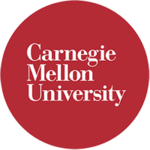
Michael McQuade, Vice President for Research – Carnegie Mellon University
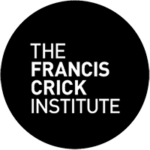
Sam Barrell, Chief Operating Officer – Francis Crick Institute

Martin Schmidt, Provost – Massachusetts Institute of Technology

Yap Seng CHONG, Dean of Yong Loo Lin School of Medicine – National University of Singapore

James Metson, Deputy Vice-Chancellor (Research) – University of Auckland

Gene Block, Chancellor – University of California, Los Angeles

Pradeep K. Khosla, Chancellor – University of California San Diego
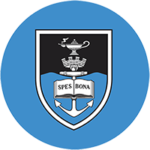
Sue Harrison, Deputy Vice-Chancellor: Research and Internationalisation – University of Cape Town

Iain Gillespie, Principal and Vice-Chancellor – University of Dundee

Patrick Gallagher, Chancellor – University of Pittsburgh

Sylvio Canuto, Research Provost – University of São Paulo
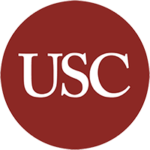
Carol L. Folt, President – University of Southern California

Anders Hagfeldt, Vice-Chancellor – Uppsala University

Daniel Diermeier, Chancellor – Vanderbilt University

Tim Sands, President – Virginia Tech

Martin Dougherty, Chief Operating Officer – Wellcome Sanger Institute

Mary Tolikas, CEO – Wyss Center for Bio and Neuroengineering
Share this work